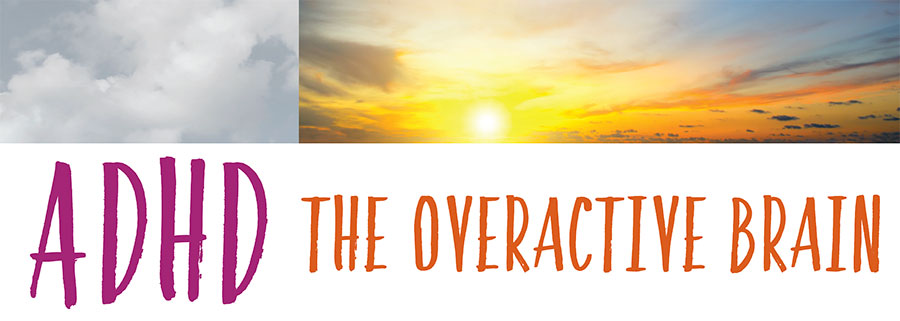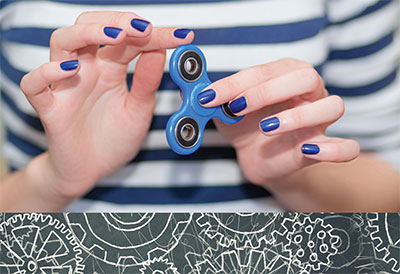
 Imagine you're up against a tax deadline. You dig out a bunch of envelopes from a pile in the living room and throw them on the kitchen table, which is when you're distracted by the fresh produce you had bought earlier.
Imagine you're up against a tax deadline. You dig out a bunch of envelopes from a pile in the living room and throw them on the kitchen table, which is when you're distracted by the fresh produce you had bought earlier.
But the dog scampers by and you impulsively start to take her for a walk, when you realize you don't know where your phone is...so, you race around the house in search of it.
Welcome to my world – the quirky universe of someone who has ADHD or attention deficit hyperactivity disorder. Children and adults with this syndrome have brains that are – literally – wired differently.
The good news: We tend to be fun-loving, kind-hearted, spontaneous, creative, humorous, generous souls. The not-so-good news: Staying focused, completing tasks, managing time and remembering important things are problematic.
This neurodevelopmental disorder affects 11 percent of school-age children; symptoms continue into adulthood in more than three-quarters of cases, as it did for me.
Is It ADHD?
CHADD, a nonprofit working to improve the lives of those with attention deficit hyperactivity disorder, lists the symptoms, including:
- Failing to pay close attention to details
- Making careless mistakes
- Having difficulty sustaining attention
- Appearing not to listen
- Struggling to follow through with instructions
- Displaying difficulty with organization
- Avoiding or disliking tasks requiring sustained mental effort
- Losing things
- Getting easily distracted
- Being forgetful in daily activities
In addition to getting diagnosed and treated, what can an adult or the parents of a kid with ADHD do? To find out, I went to the annual conference of CHADD, Children and Adults With Attention-Deficit/Hyperactivity Disorder.
More than 1,000 people filled the space. What a thrill to realize I was not alone.
I learned that those of us with ADHD have trouble behaving in a way characteristic of a responsible individual, especially the completion of mundane but necessary tasks. A major reason is that we are time blind; to us, there are only two points on the clock: Now and not now.
There's no cure for ADHD, but there are many weapons that can assist in the fight. The best strategy is getting help.
This backing can come from people, such as an expert coach, an understanding friend or relative, or a support group. Or it can be from a thing, such as a phone app, a watch, a notebook or a timer.
Online resources are abundant, including information from CHADD (chadd.org) and two other groups that came together for the conference, ADHD Coaches Organization (adhdcoaches.org) and Attention Deficit Disorder Association (add.org).
Finally, it's essential to absorb the fact that each individual with ADHD is a wonderful, unique human being – no different than anyone else who's doing the best with what she has. To sum up the expert advice: You do you.